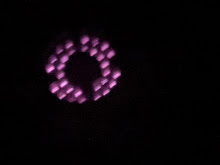Every so often we run into a machine, physically identical to other boxes successfully converted, that fails in weird ways -- network and drive controllers not found, sporadic failure to recognize drives, etc.
Sometimes the problem turns out to be an actual hardware problem,
other times the root cause is the firmware version, either OBP
(OpenBoot PROM) or (less commonly) POST. The Sparc64 project page
hints at such issues, but does not go into details.
Sun provides a "Standalone PROM Update Utility" on CDROM, as well as
documentation on upgrading firmware:
http://sunsolve.sun.com/data/802/802-3233/pdf/802-3233-25.pdf
It is technically possible to update the PROM from a netboot server.
If you don't already have a netboot server, an alternative (suggested by Mike Scher) for systems without a CDROM drive is to keep a bootable SCA drive, containing a 32-bit Solaris and the latest prom update utility in the root partition.
